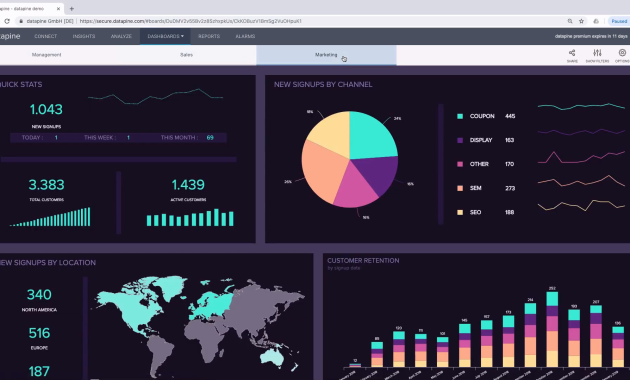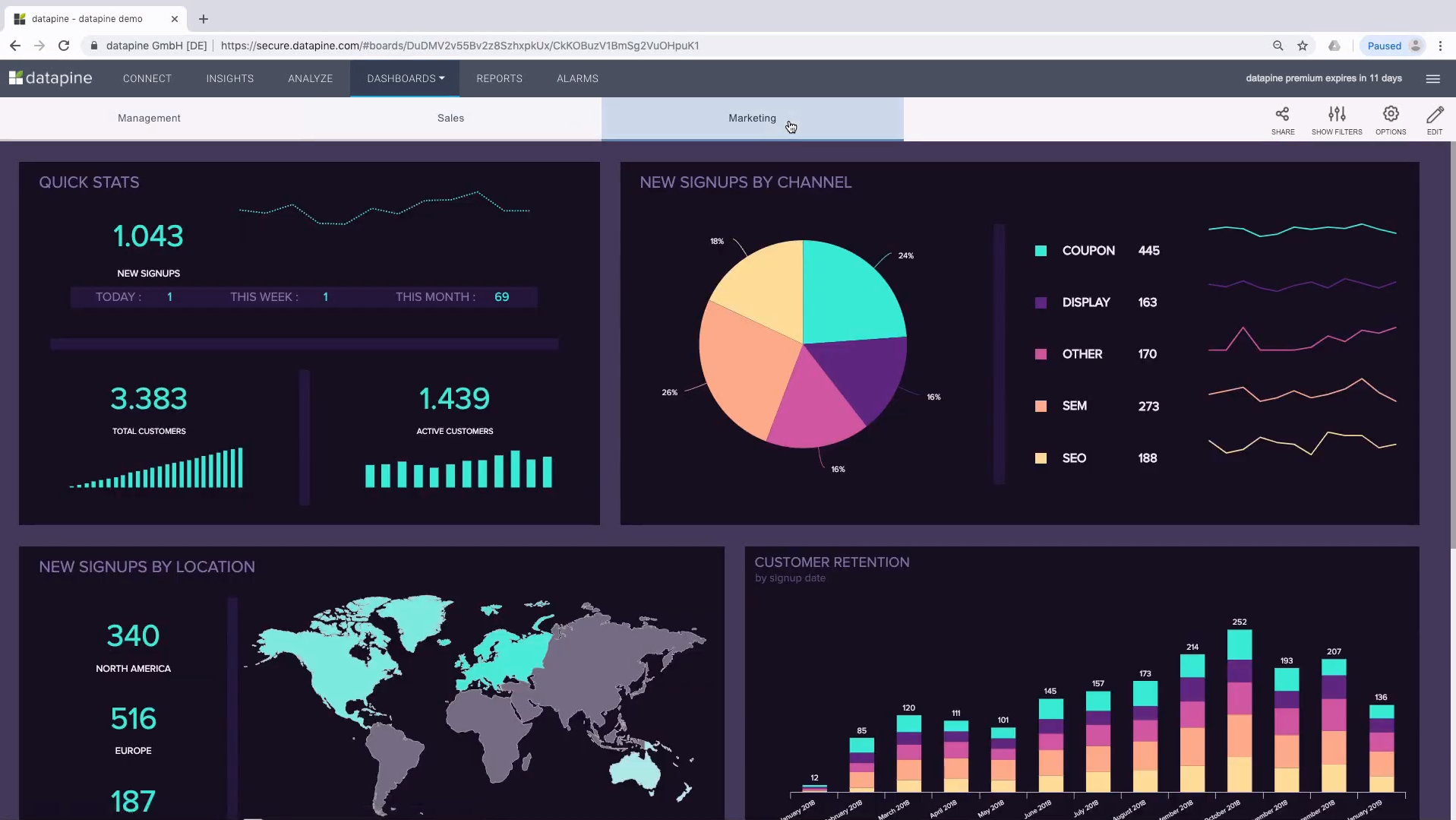
Apply Business Intelligence Software for Revenue Growth: A Startup’s Guide
In the fast-paced world of startups, agility and data-driven decision-making are no longer luxuries; they are necessities. The ability to quickly analyze market trends, understand customer behavior, and optimize operational efficiency can be the difference between success and failure. This is where business intelligence (BI) software steps in. This article will delve into how startups can effectively apply business intelligence software for revenue generation and sustainable growth.
Understanding the Power of Business Intelligence
Business intelligence software empowers organizations to collect, analyze, and interpret data from various sources. This allows for the identification of trends, patterns, and insights that can inform strategic decisions. For startups, this means gaining a deeper understanding of their target market, optimizing their sales and marketing efforts, and ultimately, driving revenue growth. Utilizing business intelligence software is akin to having a crystal ball, providing a clear view of the present and a glimpse into the future.
Key Benefits of Business Intelligence for Startups
The advantages of implementing business intelligence software are numerous, especially for startups. These include:
- Improved Decision-Making: Data-driven insights reduce reliance on guesswork. This leads to smarter and more informed decisions.
- Enhanced Customer Understanding: Analyze customer behavior, preferences, and buying patterns. This allows for personalized marketing.
- Optimized Sales and Marketing: Identify the most effective marketing channels. Track sales performance, and optimize campaigns for maximum ROI.
- Increased Operational Efficiency: Streamline processes, identify bottlenecks, and reduce costs. Improve overall operational efficiency.
- Competitive Advantage: Gain a deeper understanding of the market. Identify opportunities and stay ahead of the competition.
- Revenue Growth: Ultimately, business intelligence software helps drive revenue by improving sales, optimizing marketing, and enhancing customer experience.
Choosing the Right Business Intelligence Software
Selecting the right business intelligence software is crucial for success. Startups have unique needs and constraints, so careful consideration is necessary. Here’s a breakdown of key factors to consider:
Scalability
Choose software that can scale with your business. As your startup grows, your data volume will increase. The software must handle this growth without performance degradation. Selecting scalable software ensures long-term value.
Ease of Use
The software should be user-friendly. Look for intuitive interfaces and easy-to-understand dashboards. Startups may not have dedicated data scientists. Therefore, simplicity is key to ensure widespread adoption.
Integration Capabilities
Ensure the software integrates with your existing systems. It should connect to your CRM, marketing automation tools, and other data sources. Seamless integration simplifies data collection and analysis.
Cost-Effectiveness
Startups often operate on tight budgets. Evaluate the pricing models and choose a solution that fits your financial constraints. Consider both upfront costs and ongoing subscription fees. Look for flexible and affordable options.
Data Visualization
Effective data visualization is crucial for understanding insights. The software should offer a range of charts, graphs, and dashboards. This allows for clear and concise presentation of data. This aids in informed decision-making.
Implementing Business Intelligence: A Step-by-Step Guide
Implementing business intelligence software requires a structured approach. This ensures a smooth transition and maximizes the benefits. Here’s a step-by-step guide:
Define Your Objectives
Clearly define your business goals. Determine the specific areas where you want to improve performance. This provides a focus for your BI implementation. It helps you choose the right software features.
Identify Data Sources
Identify all relevant data sources. These may include your CRM, website analytics, and social media platforms. Ensure you have access to the data needed for analysis. Proper data access is essential.
Choose Your Software
Based on your requirements, select the appropriate business intelligence software. Consider the factors mentioned earlier: scalability, ease of use, and cost. Research different options and compare features. Choose the best fit for your startup.
Implement the Software
Install and configure the software. Connect it to your data sources. Set up dashboards and reports based on your objectives. Provide training to your team. Ensure they understand how to use the new tools.
Analyze and Iterate
Regularly analyze the data and track your progress. Identify areas for improvement. Make adjustments to your strategies based on the insights you gain. Continuously refine your approach for optimal results. Iterate for ongoing improvement.
Real-World Examples of Business Intelligence in Action
Many startups have successfully used business intelligence software to drive revenue. Here are a few examples:
- E-commerce Startup: An e-commerce startup used BI to analyze customer purchase patterns. They identified their most popular products. They then optimized their marketing campaigns. The result was a significant increase in sales.
- SaaS Company: A SaaS company leveraged BI to track customer churn rates. They identified the factors that contributed to churn. They then implemented strategies to improve customer retention. This led to higher customer lifetime value.
- Food Delivery Service: A food delivery service used BI to optimize delivery routes. They analyzed order data and traffic patterns. They reduced delivery times and improved customer satisfaction. This led to increased order volume.
Overcoming Common Challenges
While business intelligence software offers significant benefits, startups may face challenges during implementation. Addressing these challenges proactively is important.
Data Quality Issues
Poor data quality can undermine the accuracy of your analysis. Ensure data is clean, consistent, and accurate. Implement data validation processes. Regularly audit your data sources for errors.
Lack of Expertise
Startups may lack in-house data expertise. Consider hiring a consultant or training your employees. Choose user-friendly software. This will help mitigate this challenge.
Resistance to Change
Some employees may resist adopting new tools and processes. Communicate the benefits of BI clearly. Provide adequate training and support. Foster a culture of data-driven decision-making. This helps overcome resistance.
Integration Complexities
Integrating BI software with existing systems can be complex. Choose software with robust integration capabilities. Seek help from your software provider. Ensure seamless data flow.
The Future of Business Intelligence for Startups
The future of business intelligence software for startups is promising. Advancements in technology are making BI more accessible and affordable. Cloud-based solutions are becoming increasingly popular. Artificial intelligence (AI) and machine learning (ML) are playing a larger role. These technologies automate data analysis and provide deeper insights.
Business intelligence software will continue to evolve. It will become even more critical for startups. Those who embrace BI will gain a significant competitive advantage. They will be better positioned for sustainable growth. They will also be better prepared for the future.
Conclusion: Driving Revenue Through Data
In conclusion, applying business intelligence software for revenue growth is a strategic imperative for startups. By leveraging the power of data, startups can make smarter decisions. They can optimize their operations. They can gain a deeper understanding of their customers. This leads to increased revenue. Startups that embrace BI will be well-equipped. They will thrive in today’s competitive landscape. Investing in business intelligence software is an investment in the future of your business.
[See also: Related Article Titles]

